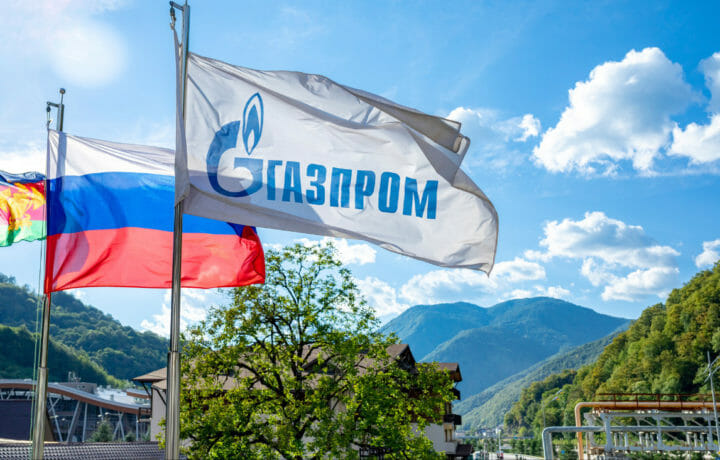Gazprom, the state-owned Russia supplier of Natural Gas to Europe, is compensating for Kremlin-imposed supply cuts by keeping minimal deliveries, while earning fantastic profits. During the first half of this year, Russia’s state oil company, Gazprom had $41.75 billion in net profit, which is up from $29 billion for all last year.
Seem confusing? Simply enough, Russia is sending less gas at a much higher price. Steady revenue continues as soaring prices compensate the Kremlin’s decision to cut European supplies. Earlier this week, Moscow said it will continue the closure of Nord Stream 1 pipeline, which provides gas transport to Europe via the Baltic Sea. It is well known that the closure is to pressure the West into dropping Ukraine war-related economic sanctions.
By the end of the year, when Europe could very well be freezing due to lack of gas and outrages energy prices, Gazprom is expecting total revenues to increase by 85%, to around $100 billion. Comparing 2021 to 2022, the company expects an average price of $1,000 per cubic meter, up from around $300 last year. In other words, due to the war initiated by Kremlin, their imposed gas shortages and subsequent energy crisis in Europe, Russia is now profiting.
Small decreases in volume can cause a large increase in gas prices, providing growth in revenue for producers. Therefore, Russia will earn more from supplying less.
U.S. Assistance?
In March of this year, the U.S. and European Commission announced they would reduce Europe’s dependence on Russian fossil fuels. The statement said the U.S. would work with international partners to try and ensure an additional 15 billion cubic meters (bcm) of Liquid Natural Gas (LNG) for the EU market during 2022, with expected annual increases.
The U.S. is now the largest exporter of LNG, so shipping more LNG to Europe seems to be a great solution. Further, exporting is now more profitable than ever because of the war and elevated gas prices. However, even with the European Union and its citizens in a panic over natural gas prices, the U.S. gas rescue plan for Europe is threatened by domestic backlash issues here in the states.
First, sinking additional dollars into export capabilities maybe risky, should the Kremlin decide to open the flow of natural gas via Nord Stream 1. Therefore, industry may not rush into Infrastructure development, as this is on the mind of producers and exporters.
The second issue is much more immediate. The American market price for gas has tripled in the past decade. But for the moment, the price remains a fraction of the European gas price, providing massive financial incentives to send LNG tankers overseas from the U.S. This will make gas scarce in other markets.
The real domestic problem is the New England winter weather and the cost of a potential jump in gas price. Foreseeing the future, state governors from the northeast warned the White House of the potential gas prices increase this winter.
The governors asked the Biden administration to help secure domestic LNG supplies for their region from the Gulf of Mexico coast, a move that potentially competes with further U.S. global market exports. During mid-winter, New England will typically import LNG from foreign sources via a terminal near Boston. This year, these sources may very well provide fuel to the shorted European market for much higher profits.
Adding to the frustration of U.S. gas producers, several states in New England continue to fight the construction of pipelines that would run from the nearby Pennsylvania-centered Marcellus Shale, one of the largest gas producers in the world.
Ukraine Pain Leads to Russian Profits
Last week, state-owned Gazprom announced a record 2.5 trillion rubles ($41.75 billion) in net profit in the first six months of this year, “despite sanctions pressure and an unfavorable external environment”. By the end of the week, Gazprom’s shares skyrocketed more than 30% after their board recommended shareholder dividends for the highly successful period.




